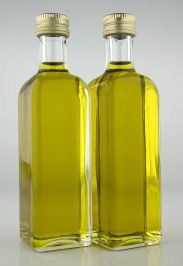Hydrogenation-Derived Renewable Diesel (HDRD)
 Hydrogenation-Derived Renewable Diesel (HDRD) is produced by refining fats or vegetable oils in a hydrotreating process. It also also known as “green diesel”, and is either used by itself or blended with petroleum diesel.
Hydrogenation-Derived Renewable Diesel (HDRD) is produced by refining fats or vegetable oils in a hydrotreating process. It also also known as “green diesel”, and is either used by itself or blended with petroleum diesel.
It uses the same feedstock as biodiesel – however where biodiesel is made up of mono-alkyl esters from long chain fatty acids, HDRD is similar in composition to petroleum diesel, being predominantly composed of saturated straight chain (C12-C18) hydrocarbons.
Future Prospects of HDRD
The prospects of HDRD are promising as research and development continues, as it has several advantages in the biofuel market. One of the key benefits is that it can be produced with the existing refining technology. Its similarity to petroleum diesel also means that there are no compatibility issues with existing infrastructure and vehicles.
Additionally, HDRD has shown higher combustion quality, which can provide an improved performance and longer vehicle life span. It also has environmental advantages to other fuels, including its ultra-low sulfur content and when burned it only releases the equivalent amount of carbon dioxide that was captured by the renewable feedstock used, for example canola.
Beta Analytic HDRD Testing
Biobased content testing determines the biomass-derived fraction of pure or blended HDRD by measuring the Carbon-14 content of the sample. Biomass-derived materials contain a known amount of Carbon-14, whereas petroleum based materials do not contain any. The ASTM D6866 standard specifies the measurement of biobased carbon as a fraction of total carbon content using Carbon-14.
ISO/IEC 17025:2017-accredited Beta Analytic provides biobased content testing for biofuels according the the analytical standard ASTM D6866. The Miami-based laboratory provides results within 7 business days or less. A priority service is available for results required in 4 business days or less. For inquiries, contact Beta Analytic at info@betalabservices.com or call a local forwarding office.